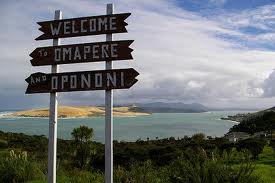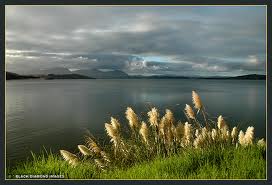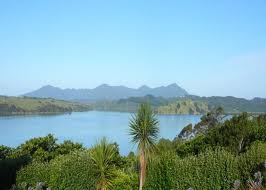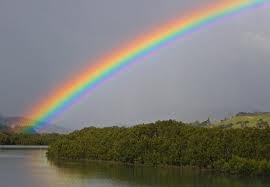TYPEWRITERS
The library I work in got rid of the last two working typewriters last week. When I arrived here, in 1991, we were still typing labels. Typed labels, especially call number labels, were subject to typos. Printing has errors too, but they are more likely to be cut and paste errors. No one I know misses the typewriter. There may be some nostalgia out there, but I for one don’t miss them. A few years ago, feeling a twinge of excitement, I took possession of a brother portable manual typewriter a friend was throwing away. I thought it would be fun to write poems on it. I had in my mind the image from PBS’s series on poets of the key striking the page, the solidity of letters. What I found was something that was painful to operate! People here make fun of how hard I hit the keys on a keyboard when I type. I tell them I learned to type (to hunt and peck, actually) on manual typewriters. Hitting the keys hard yielded a better result, especially as a ribbon faded. I don’t remember buying typewriter ribbons, but I must have.
I do remember all of my typewriters. My favorite was a Smith Corona electric typewriter with a pale blue metal body. It had a marvelous action. I wrote everything on that thing until my sister took it to college. Then I had an inferior brown model with plastic. And an Underwood (or Olivetti!) portable manual. I wrote poetry and short stories on these machine. I collected odd bits of paper and wrote poems on them. Retyping pages to get them typo free (as opposed to x-ing out whole lines, or using white out, or various other devices) was tedious.
My first novel, Specimen Tank, I wrote in a small town in New Zealand, on a Brother electronic typewriter I bought 3 years earlier in Bangkok, in a futuristic blue glass shopping mall full of gorgeously coifed Hong Kong, Bangkok and Manila millionaires. It was an electronic, not electric typewriter that had a sixteen character display, so theoretically you could catch typos. You could also go back and correct, because it used thermal paper. Thermal paper was expensive, and it didn’t preserve well. After months the type faded. The type was lousy too, you could see the dots. But it was light, and easy to travel with.
When I arrived in New Zealand I had big plans for turning a short story I had written into an experimental literary novel. I got about ten pages into it. Then, fortuitously, a friend, Celia C., sent me Charles Willeford’s Pick Up. I read it in a day or two and knew immediately that I was going to write a low tech noir I had started two years earlier based on a sentence in a journal entry I had made on the beach in Koh Samui, in 1984. I called it The Other Half, and my pseudonym was Scott Bell. I wish I could remember the sentence. Anyway, we were searching for a place to settle down. It took months of roving in a piece of shit English car that repeatedly broke our hearts. We were traveling with our 6 month old baby. It was miserable. Finally we discovered the town of Opononi, on Hokianga Harbour, about four hours north of Aukland on the west coast of the North Island.
Hokianga was an obscure and beautiful area, busy in the summer, but in winter sleepy, chilly and grey. We stayed for a while at the Harmony House, with Richard, and then moved in with Trish and Hans in an even smaller town, about ten miles up the harbour, called Rawene. They had a small house with a five acre lot and a view of the harbour. They kept about a half dozen sheep. The harbour had large green hills on the other side, rolling emerald mounds dotted with simple white churches. There were a few fishing boats moored out around the old worn piers of town. Each day the sky was arced with rainbows, sometimes several intersecting. Our rooms were on the basement level, with doors leading out to the yard. We heated it with a kerosene space heater. They heated their water with a woodstove. I’m afraid I inconvenienced them terribly by taking a long bath each night, which I liked to do with a play by Shakespeare or Marlowe. During the day I sat on a hard stool writing Specimen Tank on the Brother. I got hemorrhoids.
We ate butternut squash and parsnips and slightly deformed kiwi fruits that sold for pennies a pound and lots of what they called silver beet and Swedes, or what we call Swiss chard and rutabagas. Once a week we drove an hour and a half to the nearest supermarket and health food store, in Kaikohe, where we went to the library, the bookstore and bought supplies to make bread, granola and frozen soup chickens. Trish and Hans and their daughter were lovely, generous, quiet people. Hans was Dutch. They ran a little tea and craft shop in town.
I finished Specimen Tank in 6 or 8 weeks, writing all day long without a break. It was 120 pages. My friends congratulated me but had the presence of mind to tell me it needed to be longer. So I began the agonizing process of revision. It grew incrementally. Back in NY I rewrote and expanded it on a regular electric typewriter. I typed and retyped and Xeroxed and went through reams of paper, piles or ribbons and quarts of white out.
In 1988 we moved to Ithaca and bought a Mac SE. That summer I started to put the book onto the Mac, using Macwrite, the word processor I would use for all of my books except Endangered Species, which I wrote entirely on Word. Specimen Tank is also the only book (at least until GAHA, which is in-progress) that I didn’t write in long hand first.
I think I wrote three more versions of Specimen Tank before 1991 when I sent the final draft to Jennifer Joseph at Manic D Press. It was a print out, as there was no email, no attachments. I think she requested a computer file at some point but I’m not sure. She said the title and pseudonym sucked so I sent her a list of pseudonyms and titles to pick from. That’s how I became Buzz Callaway and it became Specimen Tank, to date my only published novel.
I don’t miss typewriters at all. But I do miss New Zealand. It is the most beautiful place I’ve ever been. I hope Trish, Hans and their family are OK. I hope Rawene and Opononi are still sleepy fishing villages with tourists in the summer. But I doubt they are. They’ve probably joined the typewriter and the Auk.








Wonderful blog Jon,
Thanks for the trip.
PS My husband gets made fun of too by everyone about the way he forcefully types on the keyboard. It’s because he’s a piano player!
Emily
That’s funny! Thank you. Emily.